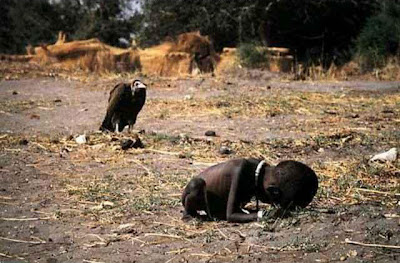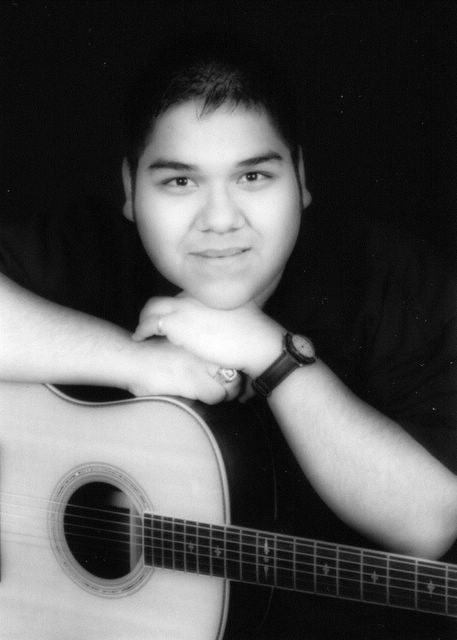
The Last Supper is one of the most scared stories in Christianity. It is imitated in the Eucharist (Baptists = The Lord's Supper, Other Protestants = Holy Communion).
This tradition is often seen by Christians as an integral part of the faith, a sacrament, or even an obligation. But what exactly are we doing when we take part in this ancient tradition?
This Easter, most Christians had the opportunity to participate in the Eucharist. It occurred to me how odd this really is. There are three traditions regarding the Eucharist within Christianity. Transubstantiation is the idea that at the time of consecration of the elements, they literally become the body and blood of Christ. This doctrine is widely associated with the Roman Catholic Church. Another view of the Eucharist is called consubstantiation; this says that the elements are 'with' the essence of the body and blood of Christ. This perspective is most widely associated with Martin Luther. A third view is symbolism; the elements are simply symbols of the body and blood of Christ. Most Baptists claim this view.
For us to understand the nature of the Eucharist, let us begin by putting ourselves in the mindset of Jesus' disciples. Unlike the now-famous picture of the Last Supper, the historical events of this famous meal were quite routine, for the most part. The Feast of Unleavened Bread immediately followed Passover, but was celebrated at the same time as one event during the years of Jesus' life. It was celebrated only in the most intimate of one's circles. This would have been one's family. Jesus and his closest disciples make up a family. Their relationship is intimate.
They are in the Upper-Room of a two-story house. The house would have been located in the Upper City area of Jerusalem, where the wealthy families lived. (As opposed to the Lower City, downwind of the town's sewage, where the poor families lived in single story abodes). It's April in Jerusalem, and sundown is about 6pm. This is when the meal began.
The head of the family (in this case Jesus) would take the bread and say a blessing over it. In the Jewish tradition, he would say, "This is the bread of affliction we ate when we came out of Egypt." The bread would be broken, not cut, and passed around - remembering the history of Israel and the descendants participation in that history. Then the wine would be passed.
The wine served as a reminder of the blood sacrifice of the Covenant. A covenant was an agreement that went beyond any of today's contractual agreements. It was absolutely obligatory to one who chose to enter into such an arrangement. The Sinai Covenant reflected in the Bible, and what became the most important in the Hebrew tradition, is known as a Suzerainty Covenant, that is an arrangement between a Suzerain (= King) and his vassals. A covenant consisted of five parts: 1) a statement reminding a king's vassals that he has done something extraordinarily gracious for them, 2) a statement of what he expects from them ; stipulations of how they are to relate to him and each other, 3) a list of witnesses, blessings and curses surrounding the covenant, 4) the ratification ceremony, including a sign or symbol consummating the covenant, and 5) formal procedures for violation of the covenant. This pattern is followed in the Sinai Covenant in Exodus.
For a covenant to be consummated, the ratification ceremony (Part 4 listed above) must be performed. This consisted of two parts 1) a verbal agreement to the covenant, and 2) the act of blood being shed; this took the form of animal sacrifice in the Sinai Covenant (Exod 24:5-8). This is the reason for the sign of circumcision in the Covenant of Abraham, and many other blood sacrifices in the ancient world. Since the Feast of Unleavened Bread remembers the Sinai Covenant, we shall keep out focus there. The wine at the meal Jesus celebrated with his closest friends was an allusion to the covenant between Israel and God after he delivered them out of Egypt, the land of slavery and bondage. The elements of the Passover meal (bread and wine) serve as a reminder of Sinai and the history of the Jewish people.
It is important to note that Passover tradition did not understand the cup of wine to be blood, but a reminder of the Covenant, as Jewish law and custom forbid any drinking of blood, especially human blood. In fact, the idea of consuming blood is repugnant and revolting in the Jewish mind. This will play a major part in understanding what Jesus does at the Last Supper.
Jesus takes the bread and blesses it, only he says that the bread is
his body. He changes the meaning of the bread, from what the Israelites ate coming out of Egypt to his body. Besides this making little sense to Jesus' disciples, it would also be seen as completely repulsive. In fact, when (and if) they finally understood this as a reinterpretation of an ancient tradition and an entirely new covenant (Jesus was the new covenant), any such revelation or understanding would still have been greatly overshadowed by the revolting idea of Jesus saying to eat his body.
Then Jesus takes the cup, calls it his blood, and
tells them to drink it!! In retrospect, the Christian tradition has understood Jesus was prophetically announcing what must take place, however this would not have been Jesus' disciples reaction. It was weird, awkward, and gross.
Church traditions aside, the Eucharist is not a pretty picture. Jesus is not saying that his is literally his blood. The greek word written in Mark can also mean, "represent." And literally drinking blood and eating human flesh would defile anyone. Any pious Jew would have never considered it; also social customs would have made the idea inconceivable. But this is why Jesus statements are so appalling. The idea of consuming flesh and drinking blood is so revolting and unthinkable, even a 'symbolic' meaning would still have been taboo. While Jesus is still not telling them to literally do this, even his metaphor is shocking and unorthodox.
Why would one drink and eat human flesh? Cannibalism is taboo in the modern civilized world. It is only practiced among the most uncivilized and inhuman of people. But Christians, within all traditions, still practice the Eucharist without understanding the implications of Jesus words. The Catholic tradition holds them to be literal. As a Jew, this is not what Jesus meant by his words at the Last Supper. A symbolic interpretation would seem to be the most historically accurate understanding of Jesus' meaning here.
But even within the context of symbolism, such a statement is still odd at best. A metaphor only makes sense if we have a literal, physical aspect from which to relate it. In other words, the metaphor makes no sense without the cannibalistic overtones it contains, and our preconceptions of such overtones. So, while Jesus did not mean for us to understand his words literally, he definitely intended for such images to be conjured up. Therefore, the disciples rightly were repulsed by Jesus' words.
This shock value would seem to fit Jesus' attitude at the meal. He is trying to get the point across that he will die and that it is necessary. His death is a new covenant. He is reinterpreting an old tradition in a new way. Jesus' blood provides the ratification ceremony. It is now his blood and body that must be remembered and honored, not the Sinai covenant. These are some reason why he uses such metaphors at the dinner. He doesn't say what he says in spite of it's shock value, but because of it. He is changing the nature of the tradition.
The images of cannibalism are clearly there. The idea of ingesting anything means that it becomes a part of the person eating. The New Covenant, Jesus, is now to be a part of us, and we are to be reminded of the New Covenant constantly. These repulsive cannibalistic overtones are to be understood and not ignored. They mean we are to make the sacrifice of Jesus'
part of us - while still keeping in the back of our minds, how really odd this whole thing is. By participating the Eucharist (eat my body, drink my blood), we are participating in the New Covenant.
It's just so ironic that Christian's recite, "This is my body..." without any idea of what Jesus words actually meant to those who heard them.
Next time you partake of the Eucharist, put yourself in the mind of Jesus' disciples and image how you would have reacted. And then bring that mindset to your prayers and consecration of the elements... and discover what Jesus actually meant at the Last Supper.
 Allen is an astute philosopher and rubix-cube solver extrordinaire. For two guys, we can talk for hours, giving any pair of junior high girls a run for their money. Quite possibly one of the most amazing guys in the world. It's been so great getting to really know you so well this past year, Allen. I love you.
Allen is an astute philosopher and rubix-cube solver extrordinaire. For two guys, we can talk for hours, giving any pair of junior high girls a run for their money. Quite possibly one of the most amazing guys in the world. It's been so great getting to really know you so well this past year, Allen. I love you. Marc is quite possibly one of the goofiest people I know. Marc & I have known each other for four years now. We work together and discuss our frustrations with the fundamentalist movement in Baptistdom, and our liberal theological persuasions. Marc is always there for me. I love you, bro.
Marc is quite possibly one of the goofiest people I know. Marc & I have known each other for four years now. We work together and discuss our frustrations with the fundamentalist movement in Baptistdom, and our liberal theological persuasions. Marc is always there for me. I love you, bro.




